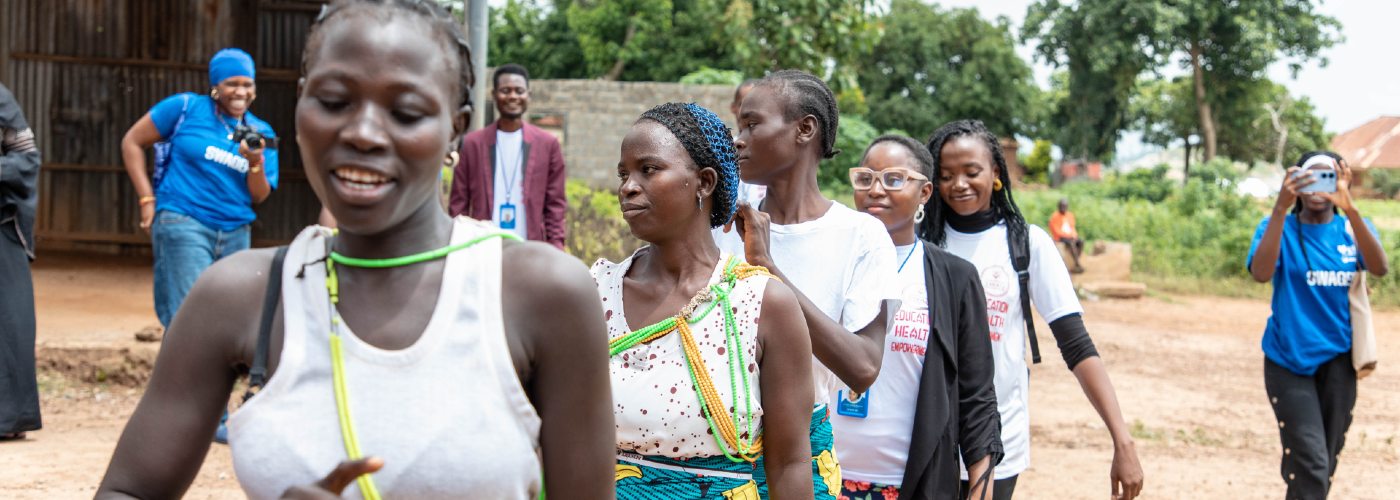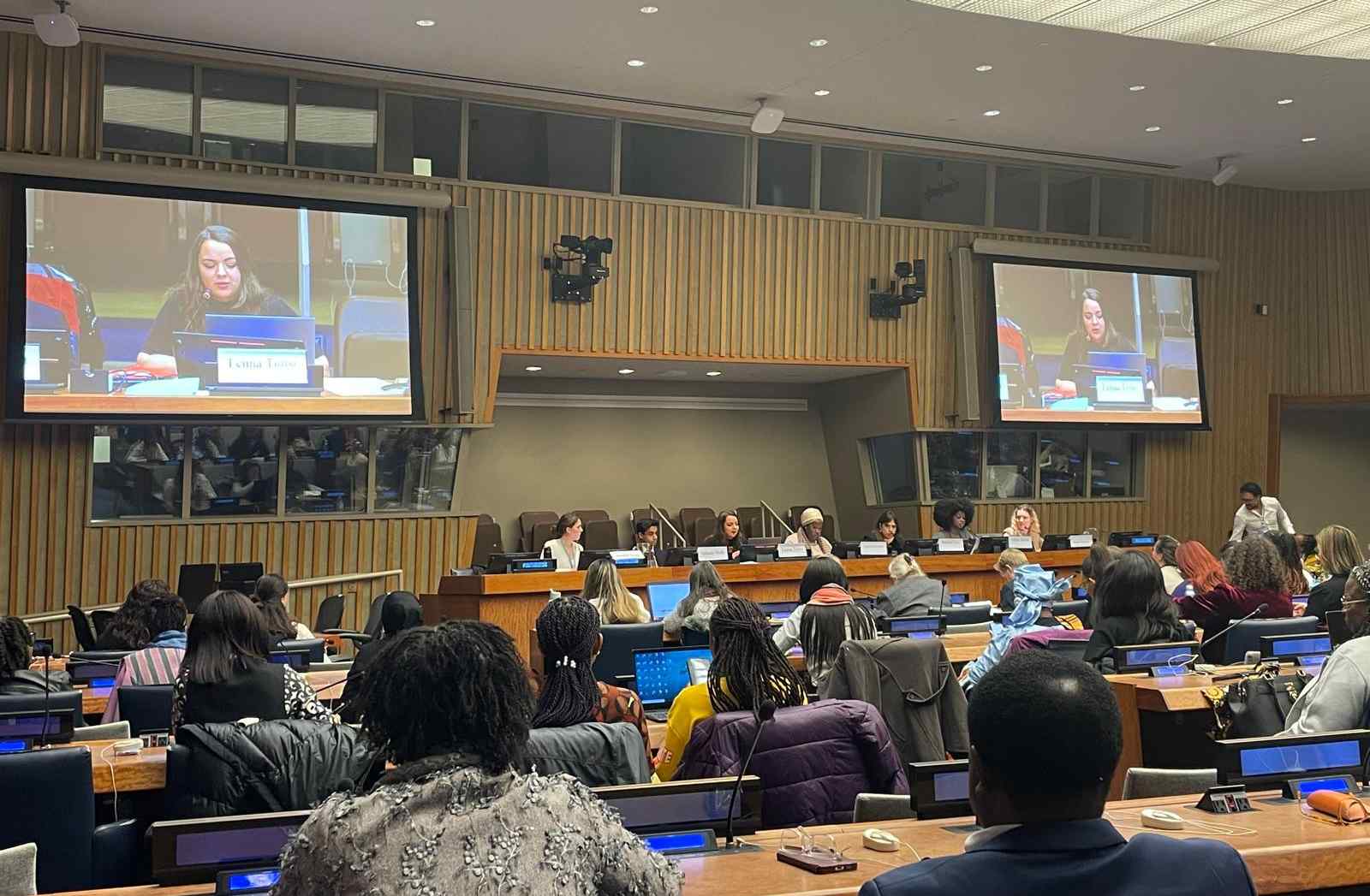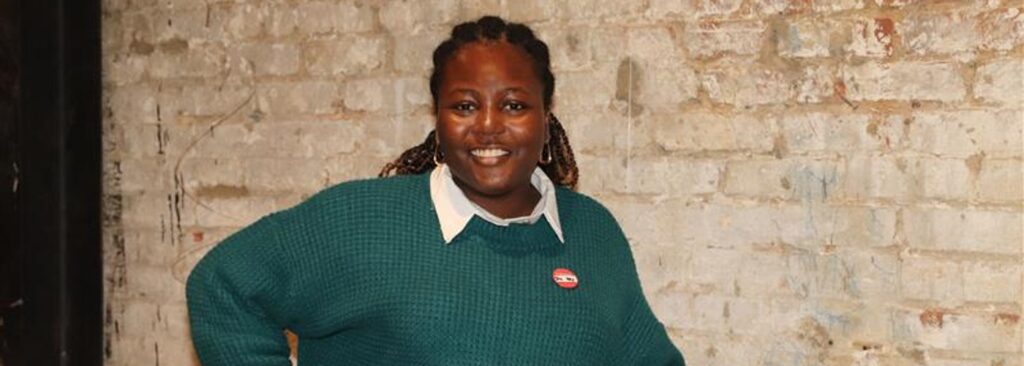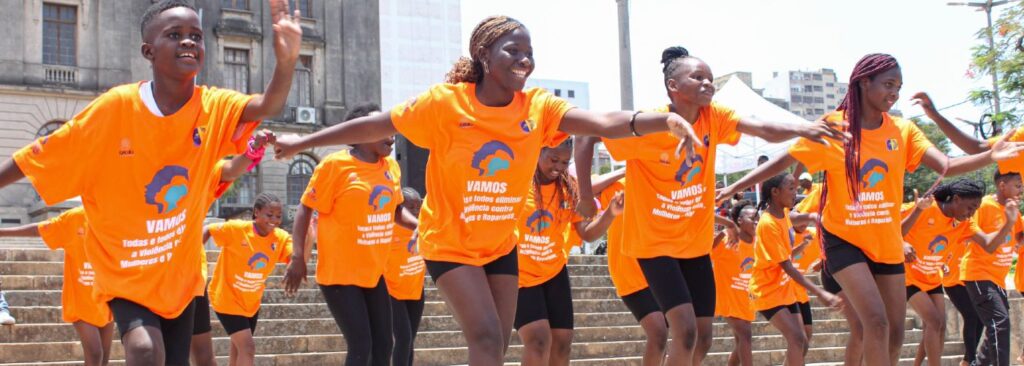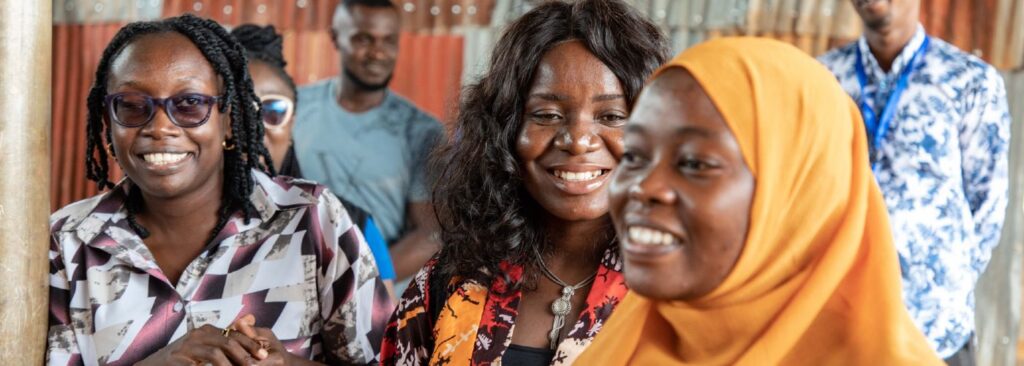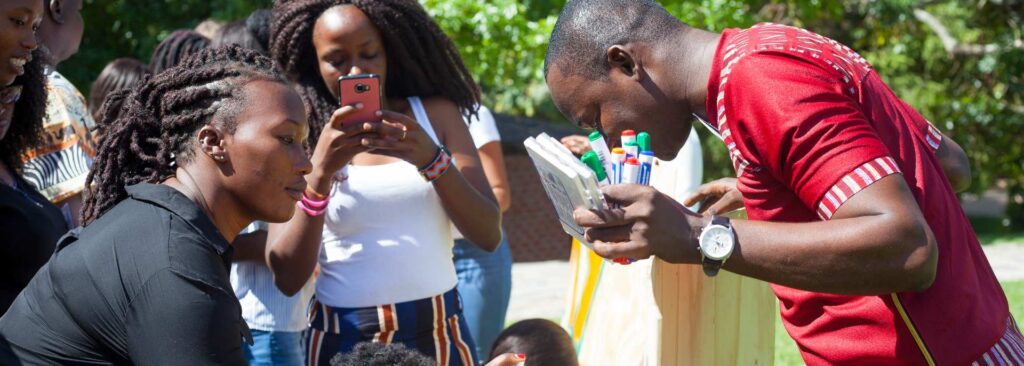By Mary Kuira, Global DMEL Coordinator at Hivos East Africa
Just a month ago, I found myself in a hospital, anxiously waiting for my son to be attended to. As we sat quietly in one of the waiting rooms, an emergency case was wheeled in — a young woman, barely out of her teens. Her face contorted in visible pain. Her dress was soaked with blood, which had begun to pool beneath the wheelchair and trickle onto the floor.
I couldn’t help but overhear the nurse asking the girl who had accompanied her, “What happened?” “She just started her periods,” the friend whispered, her voice laced with fear and confusion.
But from my own experience, I knew periods don’t arrive like this. The heavy bleeding, the extreme pain, the sheer urgency: something was terribly wrong. In a country where abortion is criminalized and conversations on reproductive health are often shrouded in silence, there are things you don’t say out loud, not even in a hospital. Later, I learned the young woman had been referred to a higher-level facility because the hospital couldn’t handle her case. I left that day with a prayer on my lips, hoping she lived to tell her story.
So why am I sharing this? Because last week, I sat in another room, far away from that hospital, attending the 58th Session of the Commission on Population and Development (CPD58) at the United Nations. This was my first time attending the annual conference. The conversations were a sobering reminder of how precarious sexual and reproductive health and rights (SRHR) remain, especially for young women like the one I saw that day.
Despite the gravity of the global challenges, CPD58 felt like a more formal than interactive space. At many of the side events I attended, audiences sat silent, rarely given the chance to ask questions. Presentations were dominated by government departments and bureaucrats. I couldn’t help but wonder — where were the voices of the people these policies are meant to serve? Where was the civil society that brought these stories from their grassroots partners?
Breaking the silence
One of the few spaces that broke this silence was a gathering organized by the International Sexual and Reproductive Rights Coalition (ISRRC), a coalition of organizations from all regions of the world dedicated to advancing SRHR. It offered a rare moment of authentic exchange, where the few CSO voices present could reflect on the battles we face both at home and on the global stage.
But overall, the opposition to SRHR remained stubborn and vocal. I listened as some delegations pushed back against terms that should be non-negotiable: Comprehensive Sexuality Education (CSE), safe abortion, gender equality. These are not just words; they are lifelines for young women, especially those navigating complex realities in countries like mine, Kenya. Ironically, many CPD58 conversations just wanted to focus on maternal health, not on teenage pregnancies or young mothers. Basically, addressing maternal health without discussing the process that leads to pregnancy (sex and sexuality) and therefore CSE.
I couldn’t help but think: How do we talk about preventing HIV without talking about sex? How do we address teenage pregnancy without speaking openly about reproductive health? How can we ignore child marriages when they remain a heartbreaking reality across many countries? And what do we say to survivors of rape — young or old — who become pregnant? Should they be forced to carry these pregnancies, regardless of the trauma or the risks?
As an advocate and a believer in the power of quality data to inform decisions, these questions weigh heavily on me. Are the policies we design grounded in real, lived experiences? Do we collect and use data to reflect the brutal realities so many young women face daily?
Combating anti-rights narratives
One clear takeaway from CPD58 was this: facts and stories must go hand in hand. Data alone can inform, but stories can transform. Both are essential to combating anti-rights narratives and creating spaces for conversations. Another key take away is the critical need for civil society to maintain both its presence and momentum in these spaces. The CPD remains one of the least attended UN meetings, and its negotiation process is opaque. The anti-rights movement’s growing clout risks reversing many SRHR gains by easily passing resolutions without push back. If civil society isn’t present and organized, no one will be the wiser. It is essential to occupy and safeguard this space.
We must train youth activists to counter opposition and challenge anti-gender, anti-abortion, and anti-CSE rhetoric not just with facts, but with human stories. Tell the stories that humanize the data; stories like the one I witnessed in that hospital room. Digital spaces hold tremendous potential to advance SRHR, especially for marginalized communities. Yet, with opportunity comes risk. The same platforms that can empower young women are breeding grounds for misinformation. Our efforts must include both creating digital solutions and equipping young women to navigate these spaces safely and wisely.
I was encouraged to see progressive voices from the European Union, Latin America, and parts of Africa and Asia stand firm in defending SRHR within the final negotiated text. But the fight doesn’t end there.
From Nigeria to Mozambique, from Jordan to Guatemala — and every corner in between — we must ensure young women in all their diversities are not left behind. Their voices, rights, and choices must be respected.
Finally, we must keep the pressure on at home. Advocacy for policies that protect and expand comprehensive sexuality education, safe abortion (where permitted), and youth-friendly SRH services must not stop at international commitments. We must hold our governments accountable and ensure those commitments translate into action.
The young woman in that hospital room deserved better. So do countless others like her.
And the only way forward is by standing up, speaking out, and refusing to let silence win.

